Gardening in Lucas Gardener
Getting Started with Gardening in Lucas Gardener
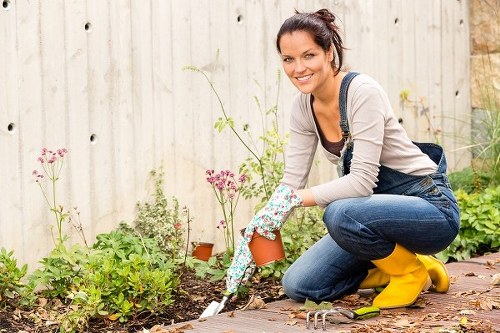
Embarking on gardening in Lucas Gardener is an exciting journey that brings both beauty and joy to your outdoor space. Whether you're a seasoned gardener or a beginner, understanding the unique climate and soil conditions of Lucas Gardener is crucial for a thriving garden.
The first step in successful gardening is planning. Assess the amount of sunlight your garden receives, the type of soil, and the space available for different plants. Creating a garden layout helps in organizing your thoughts and ensures that each plant has the necessary resources to grow.
Next, selecting the right plants is essential. Opt for native species or those that are well-suited to the local environment. This not only reduces maintenance but also supports the local ecosystem.
Best Plants for Lucas Gardener Climate
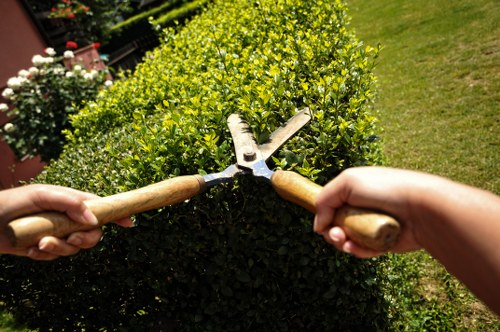
Lucas Gardener boasts a diverse climate, making it possible to cultivate a wide variety of plants. From vibrant flowers to resilient shrubs, certain plants thrive better in this region.
Consider incorporating perennials that return year after year, providing continuous beauty without the need for replanting. Examples include lavender, hostas, and daylilies, which are both attractive and low-maintenance.
Vegetable gardens are also popular in Lucas Gardener. Tomatoes, peppers, and herbs like basil and rosemary not only enrich your garden but also your kitchen, offering fresh produce at your fingertips.
Soil Preparation and Maintenance
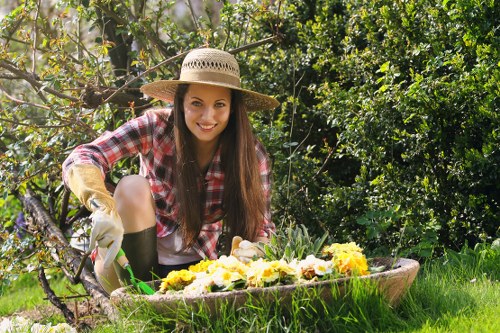
Healthy soil is the foundation of any successful garden. Conducting a soil test in Lucas Gardener helps determine pH levels and nutrient content, guiding you in amending the soil for optimal plant growth.
Add organic matter like compost or well-rotted manure to enhance soil structure and fertility. This improves drainage, retains moisture, and fosters beneficial microbial activity.
Regular maintenance, including mulching and aerating the soil, ensures that your garden remains productive and resilient against pests and diseases.
Gardening Tools and Equipment
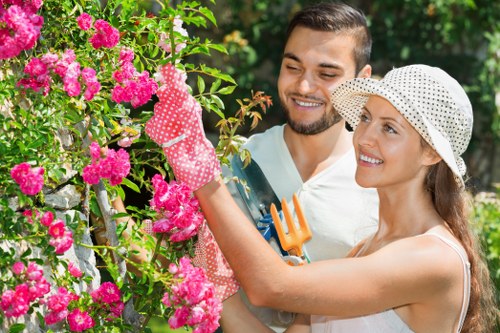
Having the right tools makes gardening more efficient and enjoyable. Invest in essential equipment such as quality shovels, trowels, pruners, and a sturdy wheelbarrow.
Modern gardening in Lucas Gardener also benefits from tools like drip irrigation systems and raised garden beds, which conserve water and offer better control over the growing environment.
Safety should not be overlooked. Wear protective gear like gloves and hats, and ensure tools are well-maintained to prevent accidents and injuries.
Sustainable Gardening Practices
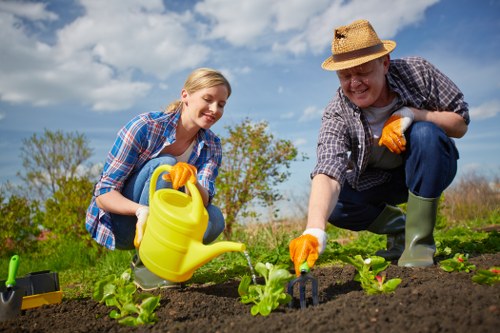
Embracing sustainable gardening is not only eco-friendly but also cost-effective. Techniques such as rainwater harvesting and composting reduce waste and reliance on external resources.
Integrating native plants and creating habitats for pollinators like bees and butterflies enhances biodiversity in your garden, contributing to a healthier ecosystem.
Moreover, practicing organic gardening by avoiding synthetic fertilizers and pesticides ensures that your garden remains safe for both the environment and your family.
Seasonal Gardening Tips

Adapting your gardening strategies to the seasons ensures year-round vitality in Lucas Gardener. In spring, focus on planting and preparing beds for the growing season.
Summer requires diligent watering and protection against heat stress. Mulching and shading can help maintain soil moisture and regulate temperature.
Autumn is ideal for harvesting and preparing the garden for winter, while winter maintenance includes protecting plants and planning for the next growing cycle.
Community and Resources in Lucas Gardener

Connecting with local gardening clubs and participating in community events can enhance your gardening experience. Sharing knowledge and resources fosters a supportive environment for all gardeners.
Access to local nurseries and garden centers offers a wide selection of plants and supplies tailored to the Lucas Gardener climate. Expert advice from staff can guide your gardening decisions.
Online resources and regional publications provide ongoing inspiration and information, keeping you informed about the latest gardening trends and techniques.
Advanced Gardening Techniques
Companion Planting
Companion planting involves growing compatible plants together to enhance growth, deter pests, and improve yield. For example, planting basil alongside tomatoes can enhance flavor and repel harmful insects.
Crop Rotation
Crop rotation helps prevent soil depletion and reduces the risk of pests and diseases. By alternating plant families in different seasons, you maintain soil health and productivity.
Hydroponics
Hydroponic gardening is a soil-less method that allows for precise control over nutrients and water. This technique is ideal for busy gardeners seeking high yields in limited spaces.
Pest and Disease Management

Identifying Common Pests
Awareness of common garden pests in Lucas Gardener, such as aphids, caterpillars, and snails, is crucial for timely intervention.
Organic Remedies
Utilize organic remedies like neem oil, insecticidal soaps, and natural predators to manage pest populations without harming beneficial insects.
Preventative Measures
Implementing preventative measures, such as crop rotation and maintaining plant health, can minimize the occurrence of diseases and infestations.
Watering Strategies
Efficient Irrigation Systems
Installing efficient irrigation systems like drip irrigation ensures that plants receive the right amount of water directly to their roots, reducing waste and promoting healthy growth.
Water Conservation Tips
Implement water conservation techniques such as mulching, rainwater harvesting, and choosing drought-resistant plants to maintain a sustainable garden.
Understanding Plant Needs
Different plants have varying water requirements. Understanding these needs helps in creating a balanced watering schedule that supports all your garden's inhabitants.
Creating a Year-Round Garden
Spring Planting
Spring is the perfect time to plant new flowers and vegetables. Focus on species that thrive in the warming temperatures and longer daylight hours.
Summer Maintenance
During summer, prioritize watering, weeding, and monitoring for pests. Providing adequate shade and ventilation can help plants withstand the heat.
Autumn Preparations
As temperatures cool, harvest mature plants and prepare beds for winter. Adding compost and mulch can protect roots and enrich the soil for the next season.
Winter Protection
Protect sensitive plants with coverings and consider using cold frames or greenhouses. Planning for the upcoming year can also ensure a smooth transition into the next gardening cycle.
Indoor Gardening Options
Herb Gardens
Indoor herb gardens provide fresh flavors for cooking and add a touch of greenery to your home. Herbs like basil, mint, and thyme are easy to grow on windowsills.
Hydroponic Systems
Hydroponic systems for indoor gardens offer a soil-less method of growing that can be maintained year-round, regardless of outdoor conditions.
Orchid and Succulent Care
Orchids and succulents are popular indoor plants known for their unique beauty and minimal maintenance needs, making them ideal for both beginners and experienced gardeners.
Gardening for Health and Wellbeing
Therapeutic Benefits
Gardening provides numerous mental and physical health benefits, including stress reduction, physical exercise, and a sense of accomplishment.
Mindfulness in the Garden
Practicing mindfulness while gardening can enhance your connection with nature, promoting relaxation and mental clarity.
Social Connections
Participating in community gardening fosters social interactions and builds a sense of community among Lucas Gardener residents.
Gardening Trends in Lucas Gardener
Vertical Gardening
Vertical gardening is gaining popularity as a space-saving technique. Utilizing walls and trellises allows for more plants in smaller areas, perfect for urban gardens.
Native Plant Integration
Incorporating native plants into your garden supports local wildlife and reduces the need for extensive maintenance, aligning with eco-friendly gardening practices.
Smart Gardening Technology
Smart technology, including automated watering systems and garden monitoring apps, is revolutionizing the way Lucas Gardener enthusiasts manage their gardens.
Gardening Challenges and Solutions
Dealing with Climate Extremes
Lucas Gardener may experience climate extremes such as heatwaves or heavy rains. Implementing protective measures like shading and proper drainage can mitigate these challenges.
Pest Resistance
Developing pest-resistant plant varieties and maintaining healthy soil can naturally reduce pest issues without relying on harmful chemicals.
Soil Erosion Prevention
Prevent soil erosion by using ground covers, terracing, and maintaining vegetation, ensuring your garden remains fertile and stable.
Integrating Hardscapes with Gardens
Pathways and Walkways
Incorporating pathways and walkways enhances the functionality and aesthetic appeal of your garden, providing structure and accessibility.
Water Features
Adding water features like fountains or ponds introduces a soothing element and can attract beneficial wildlife such as birds and butterflies.
Seating Areas
Creating comfortable seating areas allows you to enjoy your garden's beauty and provides spaces for relaxation and social gatherings.
Composting and Waste Management
Benefits of Composting
Composting transforms organic waste into valuable fertilizer, enriching your garden soil and reducing landfill contributions.
How to Start Composting
Begin composting by collecting kitchen scraps, yard waste, and other organic materials. Maintain a balanced mix of green and brown materials to ensure effective decomposition.
Utilizing Compost in Your Garden
Apply compost to your garden beds to improve soil structure, provide nutrients, and promote healthy plant growth.
Choosing the Right Fertilizers
Organic Fertilizers
Organic fertilizers, such as bone meal and fish emulsion, provide natural nutrients that enhance soil health without harmful chemicals.
Synthetic Fertilizers
Synthetic fertilizers offer quick nutrient boosts but should be used sparingly to avoid soil degradation and environmental impact.
Choosing Based on Plant Needs
Select fertilizers based on the specific needs of your plants. Leafy vegetables may require more nitrogen, while flowering plants benefit from phosphorus-rich fertilizers.
Pruning and Training Plants
Pruning Techniques
Proper pruning promotes healthy growth, removes dead or diseased branches, and enhances the shape and structure of your plants.
Training Vines and Climbers
Training vines and climbing plants using trellises or supports maximizes space and encourages better air circulation, reducing disease risk.
When to Prune
Know the appropriate times to prune different plants. For instance, spring-flowering shrubs should be pruned after they bloom to avoid cutting off next season's flowers.
Mulching for Garden Health
Benefits of Mulching
Mulching conserves moisture, suppresses weeds, and regulates soil temperature, creating a favorable environment for plant growth.
Types of Mulch
Choose from organic mulches like bark, straw, and compost, or inorganic options such as gravel and plastic sheeting, based on your garden's needs.
Proper Mulching Techniques
Apply mulch in a uniform layer, avoiding direct contact with plant stems to prevent rot and pest issues.
Harvesting and Storing Your Produce
When to Harvest
Harvesting vegetables and fruits at their peak ripeness ensures the best flavor and nutritional value. Regularly monitor your plants for readiness.
Harvesting Techniques
Use sharp, clean tools to harvest produce to avoid damaging plants. Handle fruits and vegetables gently to prevent bruising.
Storing Your Harvest
Proper storage extends the shelf life of your harvest. Keep vegetables in cool, dry places and consider preserving excess produce through canning or freezing.
Gardening for Wildlife
Attracting Beneficial Insects
Encourage beneficial insects like ladybugs and bees by planting nectar-rich flowers and providing habitat features such as insect hotels.
Creating Bird-Friendly Gardens
Install birdhouses and birdbaths to attract birds that help control pests and add lively sounds to your garden.
Supporting Larger Wildlife
Plant shrubs and trees that provide shelter and food for larger wildlife, contributing to a balanced and vibrant ecosystem in Lucas Gardener.
Gardening with Kids
Educational Benefits
Gardening with children teaches them about nature, responsibility, and the importance of environmental stewardship.
Fun Gardening Activities
Engage kids with fun activities like planting seeds, watering plants, and creating colorful garden markers to spark their interest.
Safe Gardening Practices
Ensure a safe gardening environment by using child-friendly tools and supervising activities to prevent accidents.
Conclusion
Gardening in Lucas Gardener is a fulfilling endeavor that combines aesthetic beauty with environmental stewardship. By following these expert tips and embracing sustainable practices, you can cultivate a garden that not only enhances your home's appeal but also contributes to the local ecosystem.
Contact us today to start your gardening journey in Lucas Gardener and transform your outdoor space into a vibrant oasis.
- Expert Gardening Services in Mascot
- Transform Your Outdoor Space with Dee Why’s Top Gardening Experts
- Top Gardening Services in Edgecliff
- Transform Your Garden with Expert Gardening Services in Kelvin Grove
- Transform Your Outdoor Space with Blakehurst's Premier Gardening Services
- Transform Your Outdoor Space with Bayswater's Leading Garden Experts
- Top Gardening Services in Carlisle
- Transform Your Como Garden with Local Expertise
- Transform Your Outdoor Space with Professional Gardening in Bardwell Park
- Transform Your Outdoor Space with Local Bentleigh Gardeners
- Professional Gardening Services in Dianella
- Expert Gardening Solutions for Chelmer Residents
- Top Gardening Services in Floreat
- Top-Quality Gardening Services in Piara Waters
- Transform Your Garden with Summer Hill's Top Gardeners
- Expert Gardening Services in Bulleen
- Transform Your Bondi Beach Garden with Expert Care
- Top Randwick Gardening Services
- Transform Your Garden with Professional Bankstown Gardeners
- Enhance Your Outdoor Space with Kilsyth's Top Gardeners
- Enhance Your Outdoor Space with Expert Kenmore Gardeners
- Top Gardener Services for Annandale Residents
- Top-Quality Gardening Services in Albert Park
- Transform Your Outdoor Space with Pascoe Vale's Top Gardeners
- Transform Your Epping Garden with Expert Local Services
- Transform Your Outdoor Space with Premier Gardening Services in Dutton Park
- Transform Your Garden with Bardia’s Expert Gardeners
- Expert Gardening Services in Ashfield for a Beautiful Outdoor Space
- Transform Your Outdoor Space with Alphington's Premier Gardeners
- Top Gardening Solutions in Fortitude Valley
- Expert Gardening Services to Elevate Your Kallaroo Garden
- Enhance Your Green Spaces with Ashwood’s Gardening Expertise
- Expert Gardening Services in Winston Hills
- Expert Gardener Services in Burnley: Enhance Your Garden Today
- Expert Gardening Solutions in Bracken Ridge
- Professional Gardening Services in Essendon
- Expert Gardening Services in Riverton for a Beautiful Outdoor Space
- Transform Your Garden with Embleton's Expert Gardeners
- Top-Notch Gardening Solutions in Pittwater
- Transform Your Outdoor Spaces with Expert Gardening in Beecroft
- Expert Gardening Services in Willoughby
- Transform Your Outdoor Space with Ferntree Gully's Top Gardeners
- Top Gardening Solutions in Baulkham Hills
- Top Gardening Solutions for Braybrook Residents
- Top Gardening Services in Smithfield
- Expert Gardening Services in Alfords Point and Surrounding Areas
- Transform Your Outdoor Space with Burbank's Best Gardeners
- Expert Gardening Services in Leederville
- Transform Your Garden with Huntingdale's Top Gardening Experts
- Premier Gardening Solutions in Greenwich
